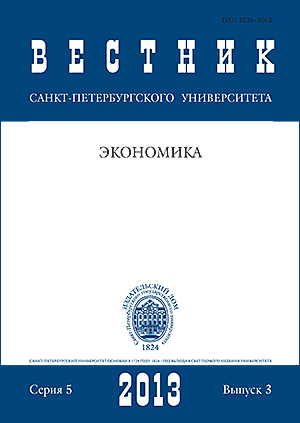St. Petersburg Paradox and its Importance for Economics
Abstract
The paper is devoted to the Saint Petersburg paradox, which has its 300th anniversary in September 2013. This paradox has played a key role in the development of some scientifi c fi elds including Economics (first of all, the expected utility theory, the hypothesis of declining marginal utility and other approaches) and Financial Modeling. Although many researchers who had discussed this paradox have not recognized the economic nature of this problem, they offered some approaches, which are important for the modern view on economic decision-making under uncertainty. Some applications to financial markets (especially ones that motivate fi nancial decision-making) are also very important.
Keywords:
St. Petersburg paradox, expected utility, marginal utility, financial modeling
Downloads
References
References in Latin Alphabet
Translation of references in Russian into English
Downloads
Published
How to Cite
Issue
Section
License
Articles of the St Petersburg University Journal of Economic Studies are open access distributed under the terms of the License Agreement with Saint Petersburg State University, which permits to the authors unrestricted distribution and self-archiving free of charge.






